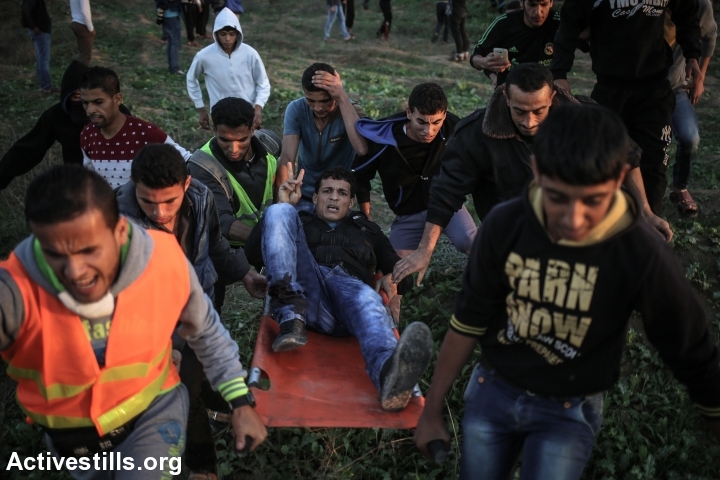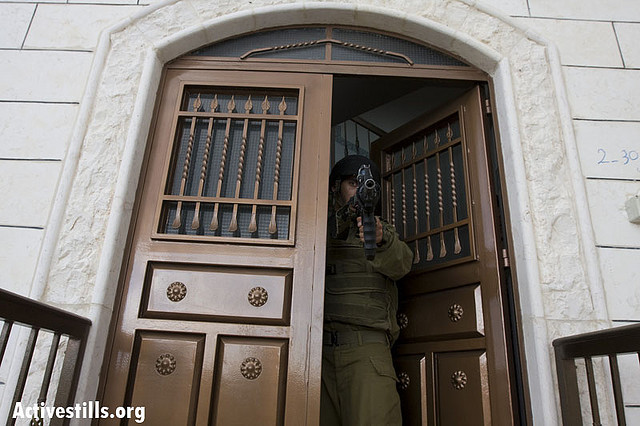Israelis are right, there is dangerous incitement among Palestinians. Here’s what they can do to fight it.

The controversy over the Hebron shooter is the gift that keeps on giving.
By Saturday, we have already stood to learn that the star of last week’s show will not be charged with murder, that a large part of the Israeli public views him as a national hero, and that municipalities will not hesitate to spend taxpayer money on organizing events in support of anyone who shoots a wounded Arab in the head. Lately, we have also geared witnessed to Israelis explaining that the poor shooter was incited by the Israeli leadership, and try to put the spotlight — as well as part of the blame — on the victim, Abed al-Fatah Sharif, who was also incited by the “other side.”
Since those same Israelis are able to come up with these pearls of wisdom through learning about the occupation from Israeli television alone (of course, we must not forget that the Israeli media tells us about everything that happens to the Palestinians), there is absolutely no one better to teach us the ins and outs of Palestinian existence under their regime.
After all, we already know that the way Israelis interpret Palestinian actions — even without ever having spoken to a single Palestinian or, say, basing their knowledge on facts — is always right. So let us just speak about this whole Palestinian “incitement” issue the way it is seen by Israelis.
Yes, there is incitement. There is definitely incitement. It has reached peak levels among Palestinians, and the proof is the hundreds of Palestinians who have been killed since October of last year. If only they would have listened to the Israelis and stopped the incitement, we would go back to the coexistence that was always here, even if it was disrupted here and there (by the Arabs, of course).

Those Israelis are right. What was the young, incited Palestinian thinking to himself when he was sleeping in his home in an incited Palestinian refugee camp or incited Hebron or incited East Jerusalem and is awoken in the dead of night to soldiers yelling in broken, non-inciting Arabic as they pound on the door? What was he thinking to himself when he went downstairs as his mother and sisters cry tears of incitement after the door was broken down? What was he thinking to himself when his incited father, and maybe even one or two of his incited brothers, are handcuffed with non-inciting violence and led outside, while an innocent Israeli kid, salt of the earth, who has his face covered and is armed to the teeth, pushes a camera into his face and demands he identifies himself?
But is that same young Palestinian thinking to himself when he discovers that his father has been put in administrative detention, and that the chances that he sees him in the next months or even years are close to nil? What does he think to himself when he sees his (incited) unemployed friends, just like him, who cannot pass through the most moral army’s checkpoints? What does he think when settlements are built on his incited grandfather’s land, while he lives in crowded conditions with the rest of his family? What does he think when he sees no chance that he will somehow establish and support his own incited family?

If only Israelis weren’t so enlightened and would prevent incited Palestinians from having their own television and radio broadcasts — not to mention access to the Internet — Palestinians wouldn’t have a single clue about the siege on Gaza or the massacres there.
According to the logic of the majority of Israelis, if those same Palestinians never logged in to Facebook or Twitter, which is so full of hate toward Israelis, they would never know that their neighbor was shot in her head by a soldier, or that settlers burned down their olive trees or an entire family’s home. And we haven’t even spoken about other causes of incitement: Israel’s enlightened apartheid laws, the inciting puppet government known as the Palestinian Authority, thousands of Palestinian prisoners, etc.
Like Abed al-Fatah Sharif and others, the young Palestinians in the West Bank and East Jerusalem are incited. And believe them when they say how awful it is that all these years, despite repeated attempts, they are simply unable to distance themselves from the inciters among them.
This article was first published in Hebrew on Local Call. Read it here.


